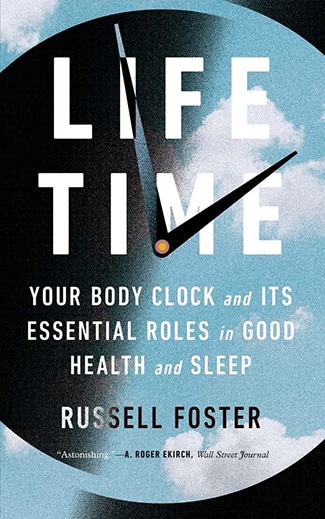Player FMアプリでオフラインにしPlayer FMう!
Unlock Better Sleep and Health by Harnessing Your Circadian Rhythm
Manage episode 435362148 series 2996299
You probably know your body follows a circadian rhythm, and probably think of it as primarily regulating your sleep/wake cycle, which it certainly does. But your body's internal clock also regulates many other physical, mental, and behavioral changes that occur every 24 hours, and working with your circadian rhythm, rather than against it, can boost your health and happiness.
Here to unpack how to do so is Russell Foster, a professor of circadian neuroscience and the author of Life Time: Your Body Clock and Its Essential Roles in Good Health and Sleep. In the first part of our conversation, we discuss some science and background on circadian rhythm and its connection to light exposure. We then turn to the practical implications of having an internal clock, including whether you need to worry about viewing blue light at night, the significant mental and physical harms that can accrue from working the night shift and what can be done to mitigate them, what influences your chronotype and whether you're a morning lark or a night owl, whether you should be concerned if you're waking up in the middle of the night, why you wake up to pee in the night, the best times of day to exercise, and how the circadian rhythm can influence when you should take medication.
Connect With Russell Foster

1061 つのエピソード
Manage episode 435362148 series 2996299
You probably know your body follows a circadian rhythm, and probably think of it as primarily regulating your sleep/wake cycle, which it certainly does. But your body's internal clock also regulates many other physical, mental, and behavioral changes that occur every 24 hours, and working with your circadian rhythm, rather than against it, can boost your health and happiness.
Here to unpack how to do so is Russell Foster, a professor of circadian neuroscience and the author of Life Time: Your Body Clock and Its Essential Roles in Good Health and Sleep. In the first part of our conversation, we discuss some science and background on circadian rhythm and its connection to light exposure. We then turn to the practical implications of having an internal clock, including whether you need to worry about viewing blue light at night, the significant mental and physical harms that can accrue from working the night shift and what can be done to mitigate them, what influences your chronotype and whether you're a morning lark or a night owl, whether you should be concerned if you're waking up in the middle of the night, why you wake up to pee in the night, the best times of day to exercise, and how the circadian rhythm can influence when you should take medication.
Connect With Russell Foster

1061 つのエピソード
すべてのエピソード
×プレーヤーFMへようこそ!
Player FMは今からすぐに楽しめるために高品質のポッドキャストをウェブでスキャンしています。 これは最高のポッドキャストアプリで、Android、iPhone、そしてWebで動作します。 全ての端末で購読を同期するためにサインアップしてください。




